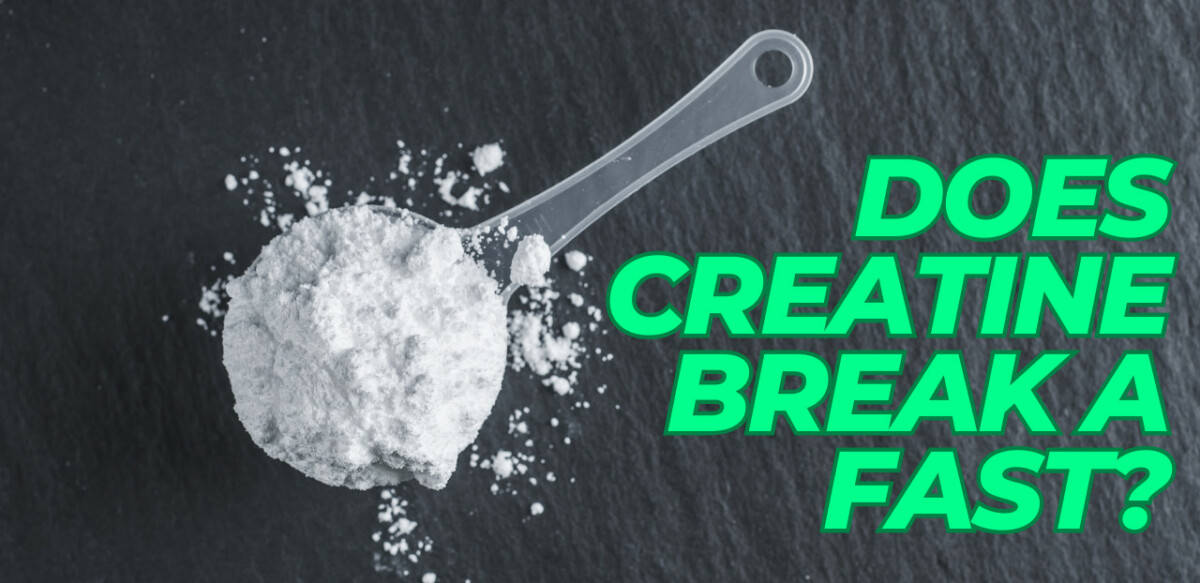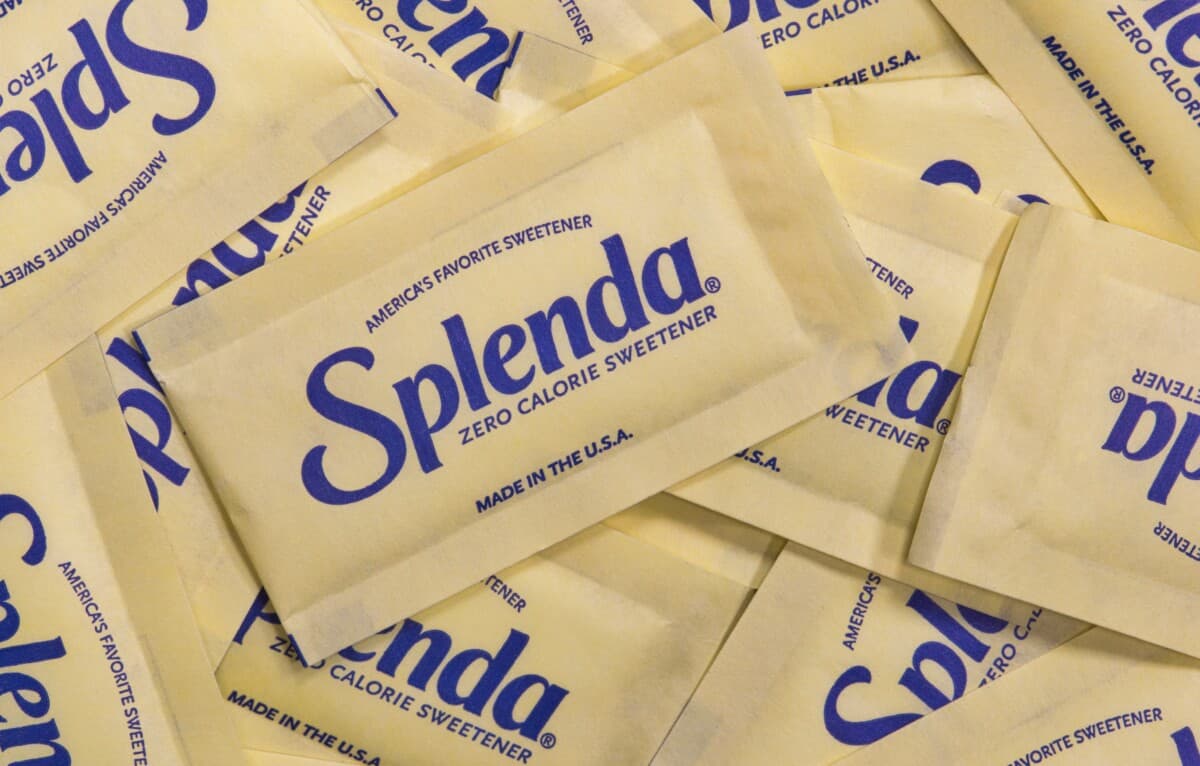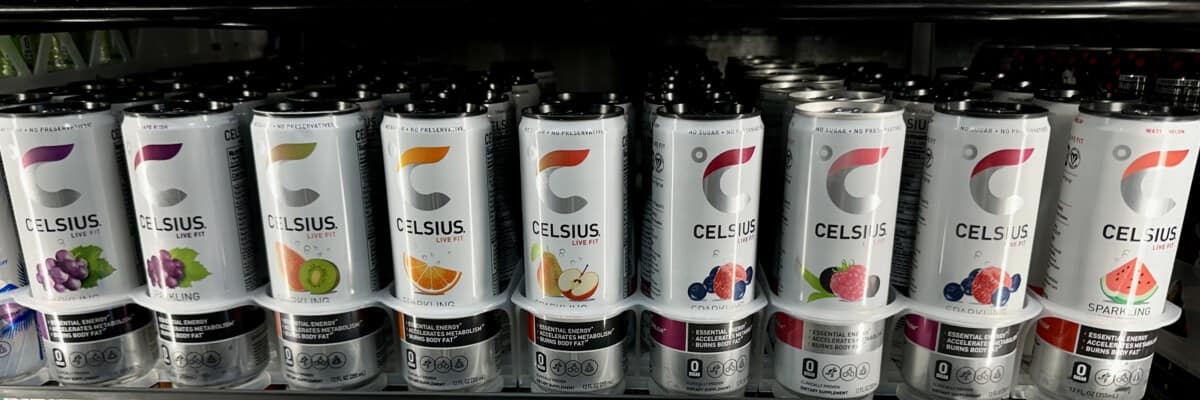Intermittent fasting has taken the health and wellness industry by storm, but you’re probably wondering, “Does creatine break a fast?”
Creatine is studied and proven for enhancing athletic performance, muscle strength, building muscle, and even boosting your brain power. But if you take creatine during your fasting period, will it break your fast?
Imagine taking your workouts and muscle-building to another level with creatine but without compromising the benefits of your fast. Yet, the last thing you want is to undo all your hard work with fasting or stop your body’s state of ketosis, autophagy, and fat burning.
In this post, you’ll sift through the science and research with intermittent fasting and discover how creatine affects your fasting state. You’ll have a plan to use creatine during your fast without breaking it and optimizing your results.
Can You Take Creatine While Fasting?
Creatine monohydrate is a popular dietary supplement athletes and bodybuilders use to enhance athletic performance and increase muscle mass.1 Creatine monohydrate increases adenosine triphosphate (ATP) production, the primary energy source for muscle contractions.2
By increasing ATP levels, creatine monohydrate allows muscles to work harder and longer during high-intensity exercises. It also helps to promote muscle recovery and reduce muscle damage.3 Creatine monohydrate is the most studied, best overall, and cheapest version of creatine for getting results.4
Creatine isn’t only for muscle building, increasing cognitive function and memory, and reducing fatigue.5,6 It also plays a vital part in the synthesis of intestinal cells. And it can be a great tool with fasting due to its gut replenishment.7
But does creatine break a fast?
Creatine does not directly cause an insulin response in your body; therefore, it does not break a fast.
However, many creatine supplements contain added ingredients and sweeteners that could break your fast. Be sure to check the label on your creatine supplement, and it’s best to take plain creatine monohydrate when fasting.
How to Take Creatine While Fasting
With creatine supplementation, you have to check the brand you’re taking to ensure it doesn’t contain added sugars. It’s best not to take creatine with added sugar, whether you’re fasting or not.
But creatine is easier absorbed by your body in the presence of insulin.8 This is why so many creatine supplements contain sugar (other than for taste). The sugar will spike your blood sugar, and then insulin enhances creatine uptake into muscle cells.
Many bodybuilders will combine creatine with high-glycemic carbohydrates or protein for this reason. You’ll maximize the potential for the creatine to transport into your muscle cells.
The benefits of taking creatine when intermittent fasting aren’t very high due to the poor absorption without insulin present. It’s best to take creatine later in the day during you feeding window to maximize absorption.
Key Takeaways:
- Brand & Sugar Content: It’s important to choose creatine supplements without added sugars, regardless of fasting status.
- Insulin & Creatine Absorption: Creatine is more effectively absorbed by the body in the presence of insulin. The addition of sugar in some supplements can spike blood sugar, facilitating the uptake of creatine into muscle cells.
- Creatine & Intermittent Fasting: The efficacy of creatine uptake is compromised during fasting because of reduced insulin presence. It’s recommended to consume creatine during the feeding window to optimize absorption.
Why You Shouldn’t Take Creatine While Fasting
When you take creatine doesn’t matter. Creatine timing has much more flexibility since it increases phosphocreatine stores in your muscles.
Since your body taps into these stores when needed, you don’t have to take creatine immediately before your workout as long as the muscle creatine stores are topped off.
It’s better to take creatine post-workout with a meal containing carbohydrates. This way, you’ll replenish your glycogen stores and get an insulin spike to increase creatine absorption.9
You can take creatine on an empty stomach when fasting, but be aware that you won’t absorb as much. Sure, you’ll absorb some, and some of it will make it into your muscles. But it’s best to have it with your post-workout meal when you break your fast with protein and carbohydrates.
How much creatine you should take should be at most 5 grams at a time. Creatine doesn’t have to be done in a “loading phase.” Studies have found that the benefits of creatine even out over time, and the cost of loading makes it not worth it.10
But if you’re trying to get quicker results or short on time then loading with 10 grams of creatine per day for 5-7 days will work.
Key Takeaways:
- Flexible Timing: Creatine intake timing is adaptable due to its impact on phosphocreatine muscle stores.
- Post-Exercise Advantage: Consuming creatine after a workout with carbohydrates aids glycogen replenishment and absorption through insulin spikes.
- Fasting Consideration: While feasible on an empty stomach during fasting, absorption varies; ideal intake is with a post-workout meal rich in protein and carbs.
- Optimal Dosage: Up to 5 grams at a time is recommended; no loading phase needed due to consistent benefits over time.
- Quick Results: For quicker outcomes or time constraints, loading with 10 grams daily for 5-7 days can be effective.
Does Creatine Spike Insulin?
Plain creatine monohydrate does not directly spike insulin levels. Insulin is a hormone that regulates blood sugar levels and helps transport glucose into cells for energy.
One of the main benefits of intermittent fasting is that your body transitions from using glucose as its primary energy source to using stored fats. This switch starts the breakdown of fat (lipolysis), producing ketones, which is your body’s alternative energy source.
An insulin spike would signal the body to stop breaking down fats and start storing glucose as glycogen, thus interrupting this metabolic switch and stopping you from burning fat. Insulin’s primary role is to help cells absorb glucose and store it as glycogen. Elevated insulin signals the body that nutrients are available, stopping the fasting state.
As said earlier, your body will have an easier time absorbing creatine in the presence of insulin. So, fasting aims to keep insulin levels at a minimum. In that case, this will be the opposite of what you’re trying to do with uptaking creatine. It’s better to wait for your post-workout meal to take in your creatine instead.
Creatine’s effects come from it being stored in the muscle, so there is no need to take it pre-workout in a fasted state. As long as you take it with protein and/or carbohydrates sometime during the day, you’ll do your best to maximize its uptake into your muscles for better results.
Does Creatine Break Autophagy?
Autophagy is the mechanism in your body where cells break down and recycle damaged or dysfunctional parts. Autophagy is your cell’s internal “clean up” and “recycling” system.
If you’re looking to slow aging and look your best, autophagy is your best friend. Removing damaged molecules and structures in your cells that can lead to aging will reduce inflammation and improve overall health. Autophagy can improve tissue repair, enhance the immune system, and slow aging.
There are two steps to maximize autophagy when fasting:
- Keep insulin levels low
- Controlling mTOR
You have to be fasting for quite a few hours for autophagy to really kick in. But if you’re regularly consuming a low-carb diet, fasting regularly, and exercising. In that case, autophagy will be easier to ramp up than somebody who is insulin resistant, sedentary, and eats a high-carb poor diet.
Creatine primarily replenishes ATP stores in the cells, which is a lot different from the autophagy signaling pathways. So, in theory, creatine shouldn’t break autophagy. However, many fasting purists believe any xenobiotic (foreign substance) ingested in the body will stop or at least diminish autophagy.
Autophagy is also elevated when fasting, and mTOR has been reduced. mTOR is a central regulator of cell growth and metabolism. mTOR is reactive to amino acid levels which are not in creatine. So, creatine should also not impact your mTOR levels, which could reduce autophagy.
Just make sure it doesn’t contain amino acids if you’re taking a pre-workout when fasting. Otherwise, mTOR will be activated, and insulin will diminish autophagy if not completely stopped.
How Often You Should Take Creatine
Creatine can be taken daily for 3 to 5 grams at a time, which is recommended to maintain adequate levels to get results. Your body’s creatine pool is primarily found in your muscles, and these stores can decrease from 1 to 2% per day. So, taking creatine daily is best to maintain elevated levels and keep it from depleting.
Most people recommend cycling creatine for a few weeks to 2 to 3 months. Taking a break between creatine cycles is believed to work better than taking it consistently. You’ll give your body a break to naturally make its own creatine instead of relying on supplements. But creatine is safe, so there isn’t necessarily a need to take it in cycles if you don’t want to.
There are a few causes that could make creatine deplete in your body. Creatine stored in your muscles depletes fast from intense short-duration exercise like sprinting or high-intensity interval training.
Those eating a vegetarian and vegan diet can have lower creatine because foods high in creatine are meats like beef and fish. And as you age, creatine can deplete as muscle mass decreases.
Does Creatine Make You Fat?
No creatine doesn’t make you fat, and it shouldn’t cause unwanted weight gain other than that from muscle and water retention. Creatine can increase the water amount in your muscle cells.
This intracellular water retention will lead to a slight increase in body weight once you start taking creatine. But this weight gain doesn’t mean you’re getting fat. It is just an increase in water retention in your muscles.
Those who shouldn’t take creatine are those with kidney disorders. Kidney disease and reduced kidney function aren’t ideal because the kidneys metabolize the creatine. If you’re predisposed to a higher risk for kidney disease, you should consult your doctor before using creatine.
Conclusion
Intermittent fasting is a well-proven dieting strategy that has plenty of health benefits. Creatine is an incredible supplement that boosts athletic performance, muscle growth, and cognitive function. When integrated with a fasting regimen, the primary concern is whether creatine disrupts the fasting state.
Fortunately, creatine itself does not directly elicit an insulin response that would interrupt fasting. But some creatine supplements with added sugars or sweeteners could break a fast.
For those aiming to maximize the benefits of autophagy during fasting, creatine doesn’t interfere with this cellular ‘clean-up’ process. But, it’s crucial to ensure that the creatine supplement contains no amino acids, which might activate mTOR and disrupt autophagy.
When you take creatine doesn’t really matter. However, post-workout with a carb-rich meal might offer the most benefits due to enhanced absorption from an insulin response. Taking 3 to 5 grams of creatine daily is usually recommended, and cycling might be beneficial.
Creatine can effectively complement an intermittent fasting routine without compromising its benefits. Just be aware it’s probably best not to take it in a fasted state even though it won’t break your fast.
Josh holds a Bachelor’s degree in Exercise Physiology and Nutrition Science. He’s a Certified Strength and Conditioning Specialist (CSCS) by the National Strength and Conditioning Association and he’s a Certified Personal Trainer (CPT) by American Council on Exercise. He’s worked as a Strength and Conditioning Coach at the high school and college levels. He has over 15 years of experience as a personal trainer and nutrition coach. He strives to bring inspiration and results for people to live healthier lives through smart diet and exercise.









